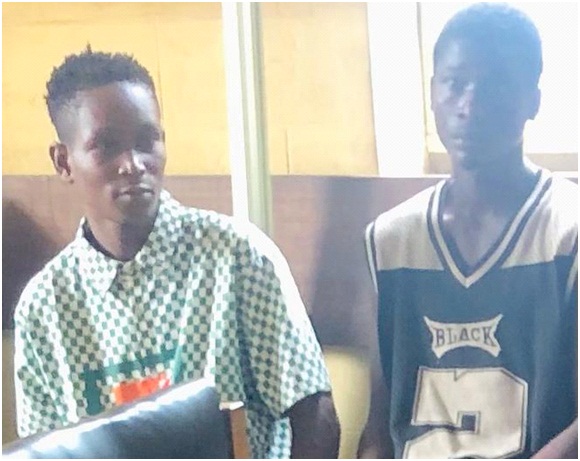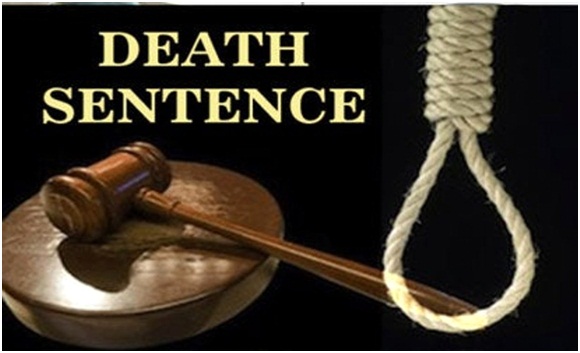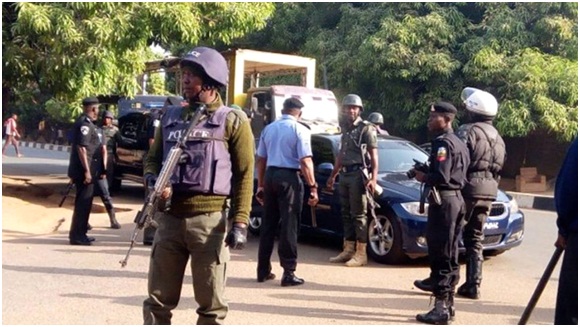Implications of mob killings
By Adedotun Ajayi
|
On May 12, 2022, Nigerians woke up to watch a horrific video of the stoning to death and burning of a female student of Shehu Shagari College of Education in Sokoto over alleged blasphemy. The female student identified as Ms. Deborah Samuel was accused of uttering unflattering comments about Prophet Mohammed on campus.
Some muslim fanatics who claimed to be provoked by her words in a video clip that went viral had meted out jungle justice on her in the way they thought fit. They stoned her to death and proceeded to set her lifeless body on fire.
Also in September 2022, a mob attacked Abubakar Tahir, a reporter with the Manjaha newspaper at Ganuwar, Kuka Village in Hadeija Local Government area of Jigawa State, almost drowning him in a river, while he was trying to cover a devastating flood in the area.
The last Easter Monday was a black one in the Ondo state capital as one Temitope Olorunfemi was stoned to death after he crushed some persons to death and injured several others with his car while trying to escape from the first accident scene along Ijoka Road, Akure, Ondo State.
The hastily formed mob accused the victim of being a fraudster and ritual killer, and before the very eyes of his helpless parents, killed him and set his car ablaze. Currently, five men have been charged with his murder and are standing before an Akure high court.
The most recent took place barely a week away from that of Temitope. A 500-level student of Obafemi Awolowo University, Ile-Ife, Okoli Ahize Chizoputam, was mobbed to death by his fellow undergraduates for allegedly stealing a mobile phone.
Investigations by The Hope have shown that in several instances, some mobs opted to dish out this form of justice because they mistrusted the law, law enforcement agencies and the justice process.
Many believe that some of the victims are usually hardened criminals or those found to have been involved in very heinous crimes particularly as it pertains to taking of a life. There is also the belief that some of these criminals always find their way back into the society as they are able to buy their freedom.
According to our Respondents, the increased incidences of mob killings in Nigeria has several serious implications, both for individuals and for society as a whole.
Khalid Okunade, a legal expert said mob killings represent a breakdown of the rule of law. “When individuals take the law into their own hands, it undermines the authority of the state and creates an environment of lawlessness”
Another implication is the loss of faith in the justice system. “Mob killings are often carried out in response to perceived failures of the justice system. When people feel that the system is not capable of providing justice, they may resort to taking matters into their own hands. This loss of faith in the justice system can further undermine the rule of law” he said
“Overall, the increased incidence of mob killings in Nigeria represents a serious challenge to the rule of law and to social stability. It is essential that the government take steps to address the root causes of mob violence, and to restore faith in the justice system. This will require a multi-faceted approach that includes legal reform, law enforcement, community outreach and education” he added
In the same vein, Oludare Adebayo, another legal practitioner said jungle justice effects on the community are numerous, including human rights violations.
He expressed that mob killings often involve extrajudicial executions and other human rights abuses whereby victims are often denied their right to due process, and may be subject to torture or other forms of violence.
Adebayo explained further that the rise of mob killings can lead to the spread of vigilante justice, where individuals or groups take it upon themselves to enforce the law which can lead to a spiral of violence as different groups compete for power and control.
“It also causes social instability, mob killings can create an environment of fear and uncertainty, which can undermine social stability. Communities may become divided along ethnic or religious lines, and people may be reluctant to engage in everyday activities such as going to work or school. The most crucial effect is the damage to Nigeria’s reputation; The prevalence of mob killings in Nigeria can damage the country’s reputation both domestically and internationally. It can undermine confidence in the government and the justice system, and deter foreign investment and tourism” he said
According to Sunday Olakuolie, a clergyman “In the days of Jesus, the Pharisees dragged a woman caught in adultery to him in order to test his fidelity to the law of Moses. This law commanded that such offenders should be stoned to death. After a brief silence, Jesus replies: “Let anyone among you who has no sin be the first to throw a stone at her” (John 8:7). Why did Jesus take such a middle position, neither explicitly consenting nor rebuking the said law?
“In addition to the obvious lesson of refusal to acknowledge one’s fault but always condemning others’, Jesus’ response has other implications on jungle justice and violation of human life and dignity. Thus, does mob justice satisfy the quest for justice? The fact is, whoever that practice Jungle Justice are guilty of sin. They practice criminality, evil and wickedness. A sinner can never fight a sinner except he/she is righteous”. He added.
Also speaking with The Hope, Omooba Olatunji, a security expert said the civic responsibility of citizens in law enforcement is to report to the police, or effect a “citizens’ arrest” where they fear that the suspect could escape before police arrive, and thereafter hand him over to the police.
According to him; “those who resort to mob action have bitterness in their hearts when they sight those they feel are wealthy and financially comfortable and want to vent their frustration on them by concocting various unsubstantiated claims”
He said jungle justice is a criminal offense in Nigeria, and urged members of the public to stop the crime.
Ayomide Olupona, a political scientist in his submission said when mobs go unpunished for their crimes, it sends a message that such acts of violence are acceptable. It undermines the credibility of the justice system and erodes the public’s trust in the government and law enforcement agencies. This can lead to a breakdown in social order and a rise in vigilantism.
According to him; “Jungle justice violates human rights, undermines the rule of law, perpetuates cycles of violence and revenge, and erodes social cohesion. It is essential for governments and law enforcement agencies to take strict measures to prevent such incidents and ensure that the perpetrators are brought to justice” he said.










